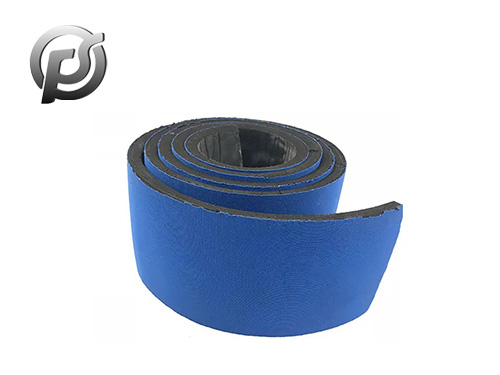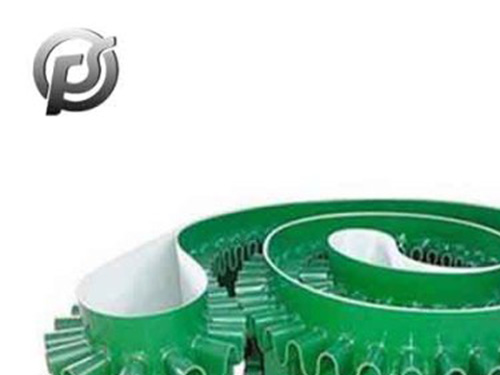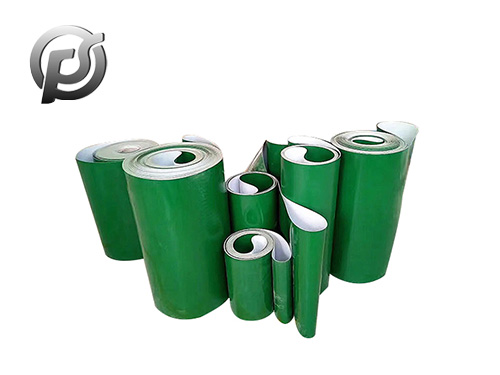The
conveyor belt will become longer after a period of use, so that it is somewhat loose, and even cannot be used if necessary repair is not carried out. Therefore, it is necessary to do a good job of the maintenance measures of the conveyor belt in use.
Avoid being stretched and becoming unusable.
The following take you to understand, the reason for the conveyor belt length analysis.
Elastic elongation, after the removal of external force can be restored to the original state, the other part is the length of the skeleton material shrinkage, this part is unable to recover.
Widely used in the transportation industry to transport a variety of solid bulk and powder like materials or pieces, The conveyor belt can be conveyed continuously, efficiently and at a large inclination angle, and the conveyor belt runs safely. The conveyor belt is simple to use and easy to maintain.
Low freight, and can shorten the transportation distance, reduce the cost of the project, save manpower and material resources.
Among common fabric core conveyor belts, EP heat-resistant conveyor belt has a relatively small elongation, while NN conveyor belt has a relatively large elongation. In addition, NN conveyor belt has a relatively large creep after the stress of nylon fiber in the process of use.
As a result, the elongation ratio increases during use, and because of the creep of the fiber, the amount that can be shrunk back after the external force is withdrawn is much smaller than the elongation.
Conveyor belt length solution.
Belt conveyor is widely used in agriculture, industrial and mining enterprises and transportation industry to transport a variety of solid bulk and powder like materials or pieces, conveyor belt can be continuous, high efficiency,
Large dip Angle transportation, conveyor belt operation safety, conveyor belt is simple to use, easy maintenance, low freight, and can shorten the transportation distance, reduce the cost of engineering, save manpower and material resources.
When the tensioning device is adjusted to the limit, it is necessary to cut off the belt, cut off a certain distance from the heat-resistant conveyor belt, and re-make the joint (cold vulcanization or hot vulcanization), and then return the tensioning device to the initial position and continue to use.
Belt conveyor is widely used in agriculture, industrial and mining enterprises and transportation industry to transport a variety of solid bulk and powder like materials or pieces. Conveyor belt can be continuous, efficient, large inclination conveying, conveyor belt
The operation is safe, the conveyor belt is simple to use, easy to maintain, the freight is low, and can shorten the transportation distance, reduce the project cost, save manpower and material resources, the cycle.
Heat resistant conveyor belt is made of multi-layer rubber, cotton canvas or polyester canvas, covered with high temperature resistant or heat resistant rubber, vulcanized together by high temperature, suitable for conveying hot coke below 175℃ (C), Mainly used in metallurgy, construction and other industries to transport high temperature materials such as sinter, coke, cement clinker. Heat resistant conveyor belt material temperature does not exceed 800℃, belt surface temperature does not exceed 220℃ conditions.
The most commonly used rubber varieties for heat resistant conveyor belt covering adhesive are SBR, IIR and EPR. At present, SBR is the most commonly used, but it is only suitable for use below 12O℃. The high temperature resistance performance of IIR is better than that of SBR, but the process performance is poor and the price is poor
It is too high and rarely used in China. The heat resistance and price of EPR are moderate, suitable for the production of heat resistant conveyor belt.
 PE Conveyor Belts: Characteristics, Applications, and Advantages
PE Conveyor Belts: Characteristics, Applications, and Advantages
 Stone Conveyor Belt: Enhancing Efficiency and Productivity in Material Handling
Stone Conveyor Belt: Enhancing Efficiency and Productivity in Material Handling
 Optimizing Operations with PE Conveyor Belts: Durability, Efficiency, and Versatility
Optimizing Operations with PE Conveyor Belts: Durability, Efficiency, and Versatility